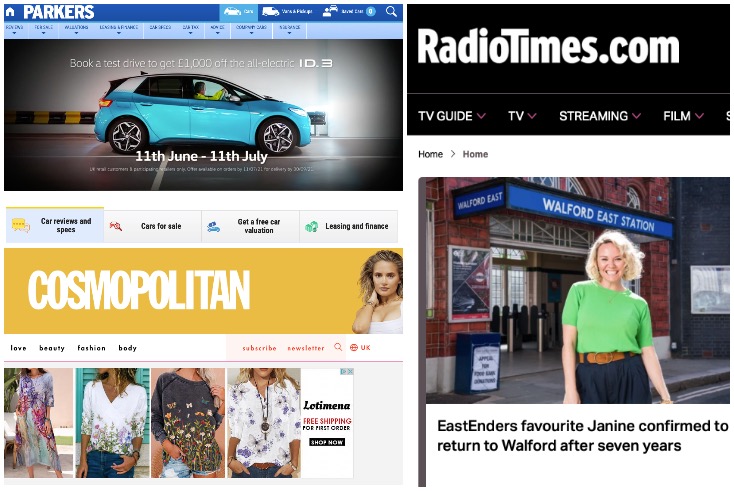Bigger salary means bigger appetite for magazine sites


The more money you earn, the more likely you are to visit a magazine’s website, according to new audience findings by Ipsos Iris.
The figures, which measure audience behaviour from the months of April, are the market research company’s first release since being appointed by UKOM to deliver measurement for publisher websites.
Ipsos Mori has found that people on higher salaries significantly over-index among audiences for magazine titles, such as RadioTimes.co.uk and GoodHousekeeping.com.
The data shows that people with incomes of £70,000 or higher have an index of 106 (compared to a baseline of 100) of the audience for the UK’s top 10 consumer magazine websites, which totalled 35.6 million people across the month.
Conversely, people with salaries of less than £30,000 under-index for audiences. The greater the salary bands, the more likely that audience is to be a consumer magazine website visitor.
Analysis of websites from four magazine publishers – Bauer, Dennis, Hearst UK and Immediate – also show that magazine online audiences are younger than print audiences with a skew towards 25-34 years olds, and an over-index of 110 vs the total online audience.
When looking at all the different websites visited by people in the survey, the findings also reveal that four magazine publishers feature in the top 10 for automotive interests, including AutoExpress.co.uk from Dennis and Parkers.co.uk from Bauer
For all websites related to entertainment, YouTube is by far the most popular, followed by Spotify and Apple Music – but DigitalSpy.com and RadioTimes.com are respectively the seventh and eighth most visites sites, ahead of Shazam and Disney UK.
Meanwhile magazine websites dominate the fashion category, with seven of the top 10 sites being magazine brands such as GlamourMagazine.co.uk, WomanAndHome.com and MarieClaire.co.uk.
Sue Todd, CEO of magazine marketing body Magnetic, said: “The financial power and resilience of our audiences is especially pleasing to understand and see in this data release as lockdown is lifted and new consumer spending patterns emerge.
“Quality and trust are at the heart of magazine brands’ offering which helps ensure we deliver the stand-out to clients’ advertising and the results that brands are seeking in this busy and economically important, summer and autumn period.”
Ipsos Iris is meant to deliver deeper insight beyond audience demographics by using a single source methodology to provide robust new digital metrics for publisher websites.
Magnetic and Kantar will share more insight into the financial resilience and attitudes to spending of magazine consumers in a webinar next week.
